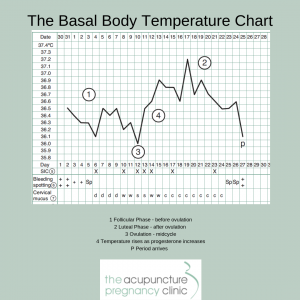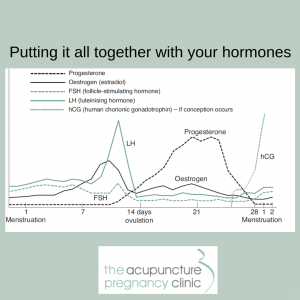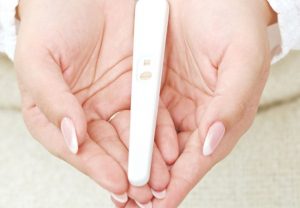You’re trying to conceive naturally, and you’d like to learn more about how to maximize your chances of falling pregnant?
Acupuncture Pregnancy Clinic is a national network offering acupuncture and Traditional Chinese Medicine to support fertility, IVF cycles, pregnancy and general reproductive health. Visit us at Westmead, Sydney CBD, Alexandria, Gosford, Melbourne, and Mornington.
Here are some Natural fertility tips to know when you are ovulating and to help you identify the best time to conceive
TIP 1: Take note of changes in cervical mucus mid-cycle.
They will let you know when your peak ovulation day is. If you watch the mucus around ovulation, you should notice a change that will indicate your most fertile days. What are you looking for is more of a stretchy kind, rather than pasty or dry, for example. It is often described as an egg-white consistency. Cervical mucous (CM) production increases by 30 times. – CM is increasingly clear and elastic, becoming profuse and watery in presentation. Ecochard & Gougeon, 2000; Side of ovulation and cycle characteristics in normally fertile women; Human reproduction
Cervical mucous (CM) detection according to one study is up to 97% effective in identifying ovulation within 2 days and up to 76% within 1 day. Also can track Libido changes ( increase) and Mittelschmerz (ovulation pain). Su, et al, 2017; Detection of ovulation, a review of currently available methods; Bioengineering & Translational Medicine.

As a general rule, the day you notice the most cervical mucus is generally the day you ovulate (or you will ovulate within 24 hours), however often cervical mucous will be noticeable 3+ days prior to ovulation. If you can track cervical mucous this is the most effective way to predict ovulation. The three days prior to ovulation, the day of ovulation is the most fertile time in the month (as sperm can live up to three days). So once you see cervical mucous- that’s the best time to get intimate

TIP 2: BBT Tracking is a useful tool for assessing ovulation and tracking your cycle.
Using a vaginal or mouth thermometer (ask your pharmacist), track your temp every day at the same time, before you get up and take your temperature before you get up. This means you will need to set the alarm for the same time each day and keep your thermometer next to your bed. What you are looking for is a 0.3-0.5 rise between the follicular phase (before ovulation) and the luteal phase (after ovulation). But remember, we humans are not robots. Some women find it stressful if their readings aren’t showing a clear pattern. This can be the case especially if you have drunk alcohol the night prior, had uninterrupted sleep or are unwell. If you get stuck, ask your Acupuncturist to guide you.


TIP 3: If it’s harder for you to tell if/when you’re ovulating, use OPK’s (ovulation predictor kits) every 1-2 days from around cycle day 10.
OPK’s detect LH (Luteinising Hormone) which stimulates ovulation, and some also detect E2 (Oestrogen rises) in your urine to let you know when you’re coming up to ovulation and when your peak day is. This helps you identify the best days to try and conceive. That is if they work for you. Research suggests they can not work a lot of the time – that is why important to use a variety of methods to really pinpoint your ovulation. Check out this fantastic blog for more info! https://modernfertility.com/blog/normal-lh-level/
One study found Urinary ‘ovulation predictor kits’ (OPK)- performed at home can often have False positives, especially for women with LH dominance. One study of infertile women showed a LH surge was not followed by ovulation in 46.8% of cycles. Average ~7% false positives.
Su, et al, 2017; Detection of ovulation, a review of currently available methods; Bioengineering & Translational Medicine

TIP 4.Get cycle tracking. While natural fertility methods can be very effective for tracking ovulation they don’t work for everyone, particularly those who have irregular cycles.
Talk to your GP about cycle tracking. It’s a blood test taken to confirm when you ovulate and it is often bulk billed. Also- If you experience irregular cycles or severe pain or heavy bleeding during your period, then it may be worthwhile seeing a GP or fertility specialist to run some tests to see if there is anything else going on (like PCOS or endometriosis).
In Chinese Medicine, irregular cycles and or heavy periods, dark blood, clotting and severe pain mean blood is not flowing as smoothly as it should to the ovaries and the uterus. Your acupuncturist may use acupuncture points and Chinese herbs to regulate the cycle and regulate your ovulation. In cases of period pain, they may help reduce pain and improve blood flow to the uterus. But if you have these types of symptoms, it is definitely worthwhile seeing a GP/ specialist to run some tests.

In short, knowing when your ovulation is and timing sex in the fertile window (3 days prior, the day of ovulation, and the day after) is KEY to conceiving naturally.

If you’re trying to conceive naturally, and you’d like to learn more about how to maximise your chances of falling pregnant, then you can watch the full workshop on this topic here from our Making it Monday collection- a weekly workshop for Mums and Dads in the making. Watch here.
With clinics in Westmead, Sydney CBD, Alexandria, Gosford, Melbourne, and Mornington, The Acupuncture Pregnancy Clinic provides care for individuals and couples navigating fertility, IVF, pregnancy and general health.
Ready to Book?
Author:

Amy Forth
Amy Forth
Amy Forth is Managing Director of the Acupuncture Pregnancy Clinic, a clinic that is an industry leader in evidence-based Integrative Traditional Chinese Medicine focusing on reproductive health, women‘s Health, and Pregnancy care. Amy is renowned in Chinese Medicine as an influential practitioner, educator, and researcher focusing on IVF support, fertility, and women’s health. Amy has been in practice since 2008, and is known for her warm, compassionate and evidence-based approach.


